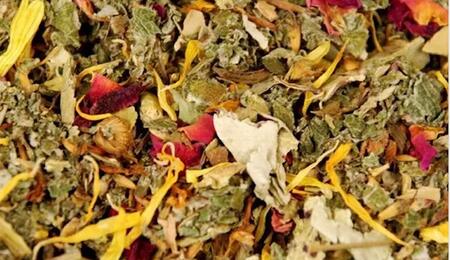Are herbal cigarettes safer than Tobacco?

Herbal cigarettes have been sold in China, South Korea, and Thailand markets for many years. Smokeable blends are made up of many plant sources, including rose petals, raspberry leaves, peppermint, mugwort, lavender, mullein, damiana, blue lotus and skullcap.
Despite limited studies on their safety, herbal smokes are gaining popularity among the wellness community. As well as those looking to kick tobacco addiction or who want to mix their weed with something non-nicotine based when smoking.
Most people who smoke Tobacco will say that they feel more relaxed and at ease after a cigarette. Herbal cigarettes can allegedly induce those same feelings by using plants that are considered naturally calming, such as Chamomile.
Those who feel that they may have built up too much dependency on THC or those suffering from adverse side effects of the psychoactive cannabinoid may also benefit from herbal blends. It is reported by users to help alleviate symptoms of insomnia, stress and anxiety that can sometimes be exacerbated by high levels of THC.
Som herbal cigarettes are also thought to provide mild physical pain relief whilst also being used as a tool in meditation, deepening the experience and helping to enhance episodes of lucid dreaming.
However, there is currently a lack of scientific evidence to prove these claims and tell us anything definitive about the benefits or dangers of smoking these herbs. The nonexistence of nicotine and THC in herbal cigarettes can reduce the risks of physical addiction and any "negative effects on the heart" associated with traditional cigarettes and joints. But there are other worries.
A large proportion of the harmful effects of smoking are caused not by nicotine but by the thousands of other chemicals produced by burning plant material that is then present in the smoke. Herbal cigarettes are no different to regular cigarettes or joints in that regard.
Smoke from specific plants will have certain chemicals unique to those plants, and you can't just assume that they are harmless.
Even if it is a plant that you can eat in some form, it does not mean that it is safe to inhale.
Diacetyl is an excellent example of this. Diacetyl is a chemical formed during yeast fermentation. It is used as an artificial flavouring agent in butter, butter sprays, margarine, shortening, oil, oil sprays and other butter-flavoured substances. While it is safe to ingest in these forms, it can cause permanent lung damage and scarring if inhaled.
Despite their growing popularity in "wellness" lifestyle circles, you should be cautious about smoking herbal cigarettes or substituting a herbal blend for Tobacco when smoking weed. It's important to understand that inhaling combustion smoke from anything can be harmful to your lungs. So it should be at the top of your list to research what you are putting into your body and the potential harm it could do before you do it.







